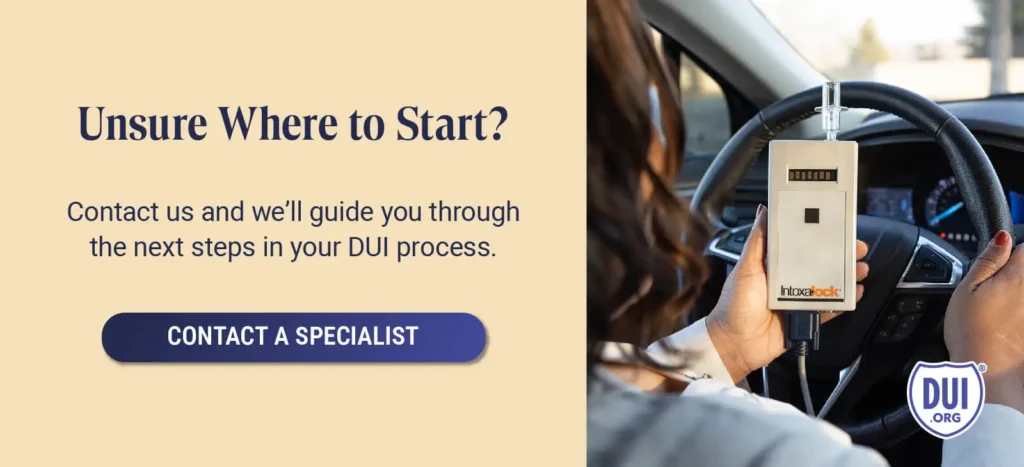
Many people wonder if driving under the influence (DUI) is a criminal offense or just a traffic violation. Understanding this distinction is important, as it not only impacts the legal consequences you may face but can also have long-lasting effects on various areas of your life.
In this guide, we'll break down the differences between DUI classifications and the potential penalties associated with each. This guide will help you understand the answer to the question: “is a DUI a criminal offense?” in detail as it is one of the most common legal questions surrounding DUIs.
DUI: Criminal Offense vs. Traffic Violation?
Understanding the types of DUI offenses is important, as they can range from minor infractions to serious crimes.
Criminal Offense Overview
In many states, a DUI is seen as a criminal offense, often considered a misdemeanor. This classification means facing criminal charges that can have more severe consequences than just a traffic ticket.
Traffic Violation Exceptions
In some cases, such as with underage drivers or low BAC levels, certain states might treat a DUI as a traffic violation. This usually means less severe penalties like fines and points on your driving record instead of criminal charges.
Permanent Criminal Record
A DUI conviction can result in a permanent criminal record, unlike minor traffic violations that usually only lead to fines.
Misdemeanor DUI: Common Consequences
Facing a misdemeanor DUI charge can be stressful, especially if it's your first encounter with the legal system.
Misdemeanor Penalties
Although the law is different in each state, first-time DUI offenses usually fall under the misdemeanor category. If you find yourself in this situation, you might face DUI penalties such as fines or probation. A qualified DUI attorney can help by explaining your rights, preparing your case, working to reduce penalties, and giving you support throughout the process.
Long-term Impact
Beyond immediate penalties, a DUI misdemeanor can also affect you in the long term. It could lead to a suspended license, limiting your ability to travel freely. A DUI conviction can also cause your insurance rates to rise sharply, as insurers see you as a higher-risk driver. This increase may affect your premiums for several years.
For a detailed breakdown of the financial aspects, read DUI financial implications.

Felony DUI: When Can It Become Serious?
The distinction between a DUI misdemeanor vs. felony is important, as felony DUIs carry much harsher consequences, including potential prison time. Here’s a breakdown of what might cause a DUI to escalate to a felony.
Repeat Offenses
If you've been convicted of repeat DUI penalties, the law typically takes it more seriously each time. Courts see this as ongoing risky behavior, which can result in tougher penalties. Having a qualified DUI attorney by your side is essential to help you secure the best possible outcome.
Causing Injury or Death
If a DUI results in someone getting hurt or dying, the charge can be upgraded to a felony. This comes with stricter consequences because of the serious harm involved.
BAC Level and Degree of Impairment
A higher blood alcohol concentration or significant impairment can make a DUI charge more likely to be a felony. The level of impairment matters based on how serious the charge is.
Presence of Aggravating Factors
Situations such as having a minor in the vehicle or causing property damage can escalate a DUI to a felony. These actions make the offense more serious and lead to tougher legal consequences.
Cooperation with Law Enforcement
Non-cooperation might lead to harsher penalties. Contact a DUI attorney to understand how cooperating with law enforcement and submitting to chemical tests impacts the charges.
DUI consequences by state vary widely, with some states imposing stricter penalties for repeat offenders or aggravating factors. For state-specific information, check out our guide on felony DUI states.
Traffic Violations Involving DUI: Are There Exceptions?
Although DUIs are generally serious, in some cases, they can be treated as traffic violations depending on specific circumstances.
These exceptions often apply to minor infractions or those with a blood alcohol concentration (BAC) below 0.08%.
Some DUI traffic violation states, like New Jersey and Wisconsin, treat certain cases as less severe, focusing on education instead of punishment. This is especially true for first-time offenders or those with minimal impairment, acknowledging that not all DUI cases are the same and that each should be considered based on its own circumstances.
When Should You Seek Legal Assistance?
If you’re facing a DUI, getting a DUI attorney advice can help you deal with the legal process and possibly lower penalties. You will likely need an attorney to help you reduce fines, keep you out of jail, and protect your license while giving advice that fits your situation.
Frequently Asked Questions
Can a DUI be classified as a traffic violation?
It can, especially where the BAC is very low. Each state has its own rules for these exceptions.
Is a DUI always a criminal offense?
No, not always. While DUI is typically treated as a criminal offense, there are exceptions depending on the state and the specifics of the case.
Can a DUI be removed from my record?
Removing a DUI from your record depends on the state you live in. Some states have laws that might allow you to remove a DUI from your record. A DUI attorney’s advice can help you get specific information about this, or there may be information available on the state government’s website.
What happens if I refuse a breathalyzer test?
Refusal often leads to automatic license suspension and additional legal consequences in many states.
Take the First Step to Overcome Your DUI
Is a DUI a criminal offense? Understanding this distinction is just the start of navigating your journey forward. DUI.org is here to make the process easier by helping you meet requirements for ignition interlock devices and SR-22 or FR-44 insurance, so you can get back on the road safely and responsibly. Call a DUI.org state specialist for assistance.
Get support.
What is next? We can help you through the process. Give us a little information and we can support you through the next steps.
All fields are required.